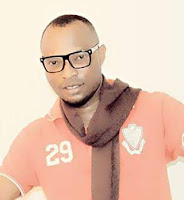INTRODUCTION
John Akpan, an exceptionally brilliant boy in primary six,
got injured while playing football at school. His father took him to the
hospital and the doctor treated his situation in such a manner that he loved
the job instantly. Being an inquisitive lad, he deeply queried the doctor who
revealed that his speciality was sports medicine. John has completed his WAEC
and he did so well in all his subjects, especially in Mathematics, English
language, Biology, Chemistry and Physics.
When asked what his life ambition is,
he said, "I want to be a sports medicine specialist", citing his
afore-mentioned childhood encounter as his inspiration.
What to learn on this self-training manual are:
How to become a professional doctor
How to become a professional team doctor
How to become a professional sports doctor
How many years to become a professional doctor
How to become a professional medical doctor in Nigeria
How long does it take to become a professional doctor?
How to become a doctor for a professional sports team
Become a professional doctor
How to become a doctor for professional sports teams
How to become a professional medical doctor
How to become a professional sports team doctor
WHAT IS SPORTS MEDICINE?
Sports medicine is a relatively new field in medicine, which
relates to the health and well-being of athletes. But as a field of medicine,
it is okay to understand the term "medicine" before we proceed with
sports medicine.
Medicine is the science and practice of the diagnosis,
treatment and prevention of disease usually carried out by health
professionals such as doctors, nurses, surgeons, psychotherapists, etc., to
promote and maintain well-being.
Medicine is a vast discipline with many fields to practice in.
These fields include Alternative and Complementary Medicine, Biomedical
Research, Clinical Medicine, Clinical Research, Physical and Occupational
Therapy, Psychotherapy, Sports Medicine, Surgery, etc.
Also, there are branches of medicine, which include anatomy,
biochemistry, biomechanics, biophysics, biostatistics, cytology, embryology,
endocrinology, genetics, histology, microbiology, neuroscience, nutrition,
pathology, pharmacology, physiology, radiology, toxicology, etc.
Of these, our focus is on sports medicine. Sports medicine
is a field, or subspecialty, of medicine which involves the diagnosis,
treatment and prevention of sports and exercise-related injuries. Sports
medicine focuses on helping both professional and amateur athletes perform
optimally, with its aim being set to be achieved from either of three
dimensions: curative, preventive and rehabilitative.
Sports medicine is developed to help make competition,
exercise and health safer and more satisfying for athletes. A team of health
professionals ensure that athletes remain fit and healthy. They include:
* Physicians,
*Orthopedic Surgeons,
*Physiotherapists,
*Trainers,
*Podiatrists,
*Physiologists,
*Dieticians,
*Strength and Conditioning Coaches,
*Biomechanists,
*Psychologists, etc.
The sports doctor/physician is primarily concerned with
injury management, ultimately aiming at ensuring the athlete's quick recovery,
and a safe return to sports. (S)he attains these using the following steps:
1) Accurately diagnosing the injury,
2) Identifying the root cause(s) of the injury to avoid
reoccurrence,
3) Providing intensive rehabilitation so that the injury can
be rapidly healed, and
4) Returning the individual to the level of activity that
s(he) was before the injury, or even a better state, by healing the injury or
any other observed problem.
WHAT DOES IT TAKE TO BE A SPORTS MEDICINE SPECIALIST?
To become a sports doctor or physician, do the following:
1) Go to college or university to get a bachelor's degree. A the pre-med course can be done to gain a foundation in biology, general/organic
chemistry and physics.
2) Take and pass the admission test into medical school.
Attend the school for four years to obtain a Doctor of Medicine (MD) or a
Doctor of Osteopathic Medicine (DO) degree.
3) In the USA, take the first two parts, out of three, of
the USMLE, before graduation from medical school, one after the other, in the
third year and the final year respectively.
4) Based on the choice of speciality, apply for clinical
residency. Take and pass the last of the USMLE before completing the residency
(in the USA).
5) Get certification(s) by joining and completing a
fellowship(s).
6) Get a license from your state/country to operate as a
sports doctor or physician.
In terms of duration, the above could take 13-15 years.
Board certificates which make one qualify to practice as a
sports doctor in Nigeria can be got from
the following:
a) Nigerian Orthopedic Association (
NOA),
b) American Orthopedic Association (
AOA),
c) Nigerian Arthroscopy and Sports Medicine Association
(
NASMA),
d) International Society for Arthroscopy, Knee Surgery and
Orthopedic Sports Medicine (ISAKOS),
e) European Society for Sports Traumatology, Knee Surgery
and Arthroscopy (ESSKA), etc.
CONCLUSION
Sports medicine is a relatively new field in medicine and as
such is an area which medical students and professionals can find fulfilment
in exploring in-depth. As for John, the career choice of sports medicine would
present such a challenging, yet an exciting fulfilment in knowing that he can
always be handy in helping athletes in any sports clime to achieve their full
potentials.
I’m Kingsley, Kingsmond Ehimare (Dip., B.Sc., M.Sc., AHR) Business Psychologist, Business cognitive Coach & Consultant. Write for Quora.com, The Heart Magazine, Kingsmond.com, Fiftalternative School and others.
This intellectual property belongs to KCmond consult, no part of it is expected to copy or publish without the sole permission of Kingsmond Ehimare.










Comments
Post a Comment